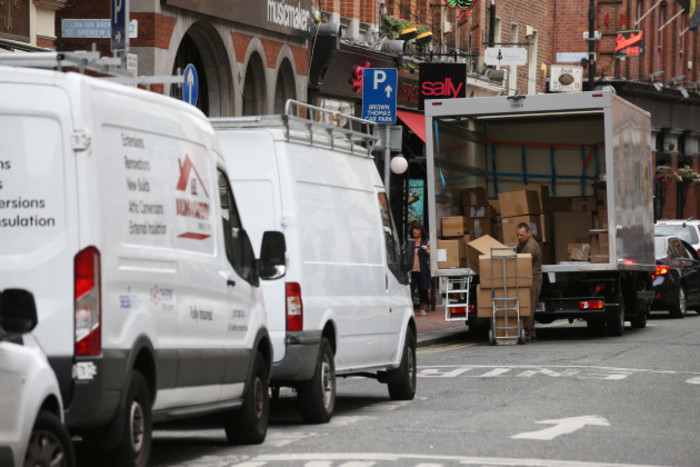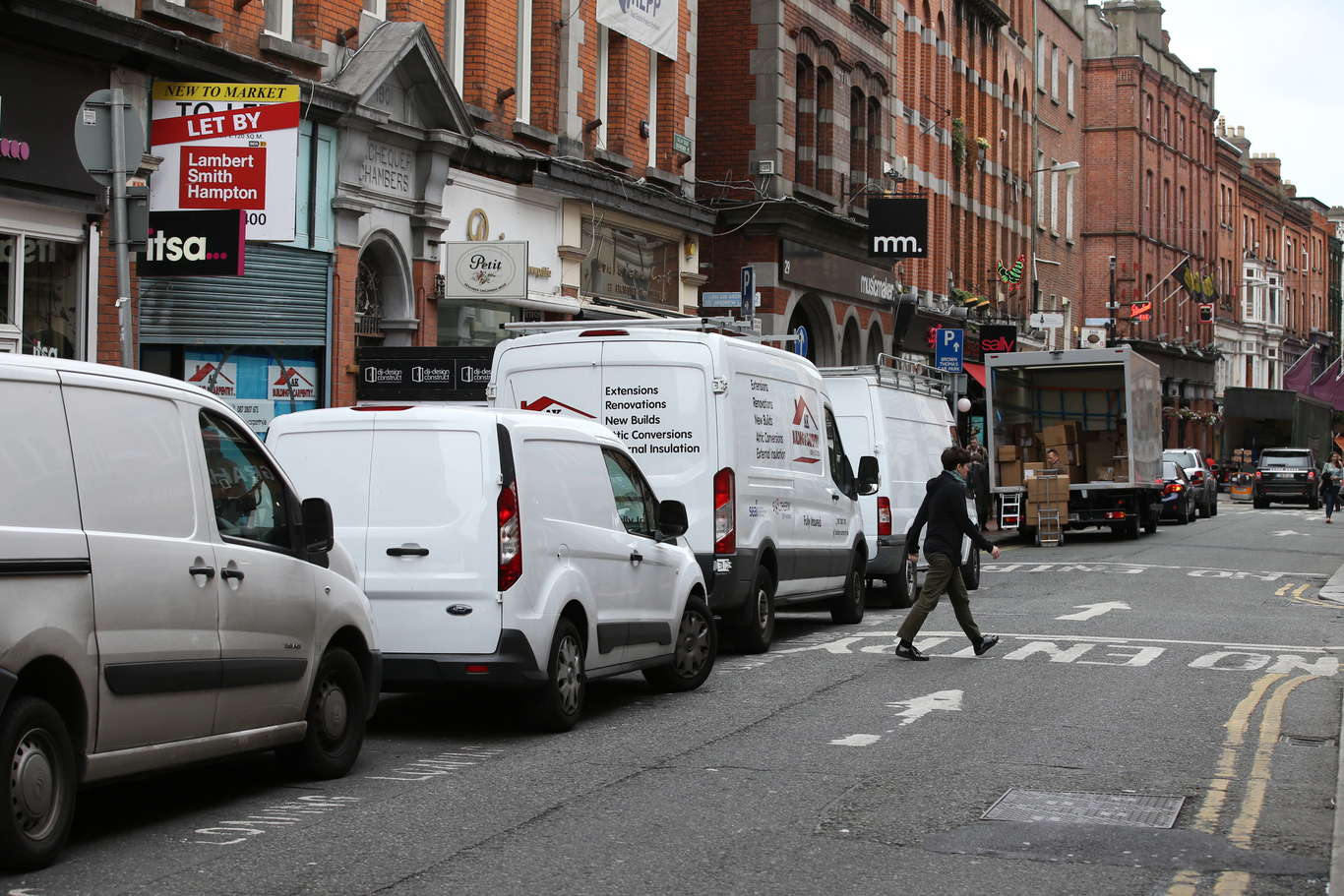Dublin council is planning a 'last-mile delivery' service to cut back on trucks and vans in the city
The local authority wants businesses to put forward suggestions for a shared freight logistics service.
DUBLIN COUNCIL IS planning to introduce a ‘last-mile delivery’ service in an attempt to tackle traffic gridlock in the city centre caused by delivery trucks and vans.
A joint tender issued by the local authority and Belfast City Council has called on businesses to put forward ideas for more efficient and sustainable freight services.
The need to address freight delivery in the Irish capital was noted in the Dublin City Centre Transport Study in 2016. In that report, the council outlined its goal is to develop a more pedestrian- and cycle-friendly city.
The local authority said a key aspect of achieving this goal is optimising freight and cargo deliveries in a manner that is both suitable for businesses and citizens.
“Both Dublin and Belfast are looking for ways to enhance the efficiency and effectiveness of deliveries, reducing the number of goods vehicles in their respective urban centres,” the tender stated.
“The safety of how goods are delivered needs to be improved. Cellar doors are left open outside pubs while beer barrels are rolled along the footpaths; trucks and vans mount the kerb while pedestrians and cyclists navigate through delivery operations.”
It added that traffic congestion in Dublin currently costs the economy €350 million per year and has contributed to poor air quality in the city.
Belfast council said that its road network is also congested at peak periods and the city has many hotspots where large traffic volumes exceed available capacity.
Dublin council has already started to research ‘last-mile delivery’ solutions through a pilot with courier service giant UPS that involved the creation of a sustainable logistics hub at a city centre location.

What the council wants
In the tender, the local authorities noted that there is a lack of baseline information in both Dublin and Belfast about the volume of freight delivery in the cities.
It added that previous research in the two cities has shown retailers are largely content with the current delivery processes.
However, Dublin council said it still wants to create a new freight delivery system that would be shared by city centre businesses and cut down on vans and trucks in the city.
The system would involve the creation of special loading bays at a city centre location where items would be dropped off. A shared logistics provider would then complete the final leg of the delivery using electric vehicles.
“Micro hubs are dedicated areas of street or car parks with space for two or three vans or small lorries where deliveries can be made and goods passed over to the last-mile distribution,” the tender stated.
Contracts for the first phase of the project are expected to be awarded to the successful applicants by July.
Between four and five applicants will be given initial funding up to €12,500. Following a further proof of concept process, up to two applicants will be awarded between €50,000 and €100,000 as part of the final stage of the project.

SME research scheme
The call-out has been issued as part of the Small Business Innovation Research Ireland (SBIR) programme, which involves state entities purchasing research undertaken by SMEs.
This ‘last-mile delivery’ project is part of the wider Smart Dublin initiative. The scheme intends to encourage use of tech to address challenges around transport congestion, management of extreme weather events and energy reduction.
SBIR Ireland was launched almost four years ago, but this is the first all-island joint innovation scheme.
The first SBIR project sought smart technology solutions for electric vehicles in shared access parking areas, which resulted in a partnership between ESB Ecars, the Sustainable Energy Authority of Ireland and Enterprise Ireland.





